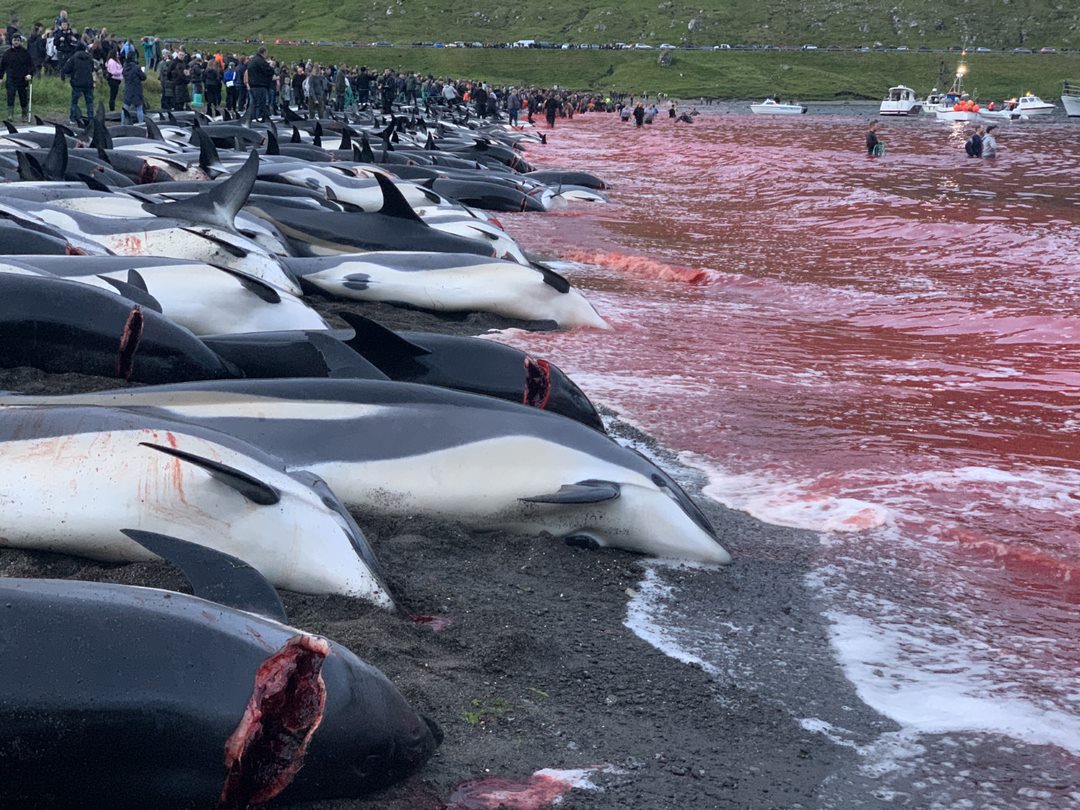Report sheds new light on welfare concerns in the Faroes whale and dolphin hunts
In the Faroe Islands, which are a self-governing archipelago within the Danish Kingdom, the hunting of certain cetaceans (whales and dolphins) has been ongoing for hundreds of years and continues to this day. OceanCare is deeply concerned about this activity and has made many representations to the authorities in the island and to the relevant Danish and European authorities calling for an end to this practice. However, this has always been met by strong statements of support for the hunts from both the hunters in the islands and the government.
It is very difficult to provide independent assessment of what is happening on the islands, including how the hunts are conducted because this is a relatively isolated situation with small communities scattered across many different islands and the hunting occurs in many locations.
Recently, we asked Dr Andrew Butterworth MRCVS to investigate the welfare aspects of the hunts and he has analyzed film of some of last year’s hunts which is freely available online.
Dr Andy Butterworth is a widely-published independent veterinarian and animal welfare consultant and carries out research, consultancy and assessment in the areas of animal disease and production, animal welfare and legislation, behavioural biology, and animal welfare assessment in both farm and wild animals. Andy has carried out animal welfare projects in many parts of the world, and is Director of AWT, Animal Welfare Training. Previously a member of ACOS (Advisory Committee on Organic Standards), EFSA AHAW (European Food Safety Authority, Animal Health and Welfare Panel), and of the UK Gov AWC (Animal Welfare Committee). His publications include the 2017 book ‘Marine Mammal Welfare – Human Induced Change in the Marine Environment and its Impacts on Marine Mammal Welfare’. Dr Butterworth has also published assessments of the cetacean hunting conducted in Japan.
Dr Butterworth makes a number of conclusions based on his examination of the Faroes hunts, which are also known as the Grind:
- That the method used to kill the whales and dolphins is outdated. The spinal cord severance method was long ago outlawed for the slaughter of farm animals;
- That the hunters did not check the whales to see if they were conscious after spinal severance as required in their instruction manual;
- That the insertion of the hook into the blow hole and hauling the animal using the hook raises significant welfare concerns;
- That it appears that the same methods are used for all of the four species killed in the Grind but it seems unlikely that the same anatomical guidance on positioning of the spinal lance is appropriate across such a wide range of animal sizes; and
- It would appear that the methods which the Grind whale killing on the Faroes adopts, and accepts, are at a very much lower standard of animal welfare than that adopted in the Faroes and in Denmark for farmed species.
His report can be found here: https://www.oceancare.org/wp-content/uploads/2023/02/Faroe-Islands-whale-hunt-Butterworth-final.pdf
Please note that the footage on which this factual assessment is based, was already made available in the public domain and published by other sources.
